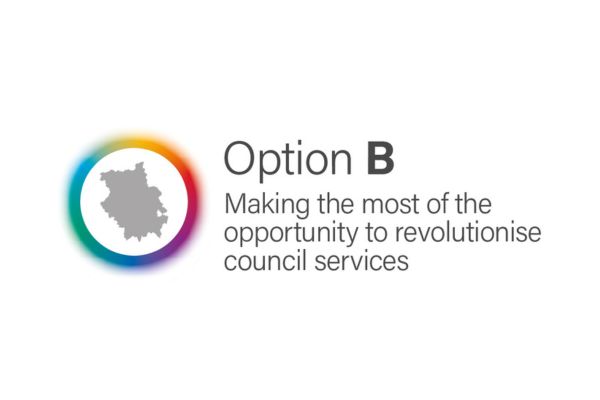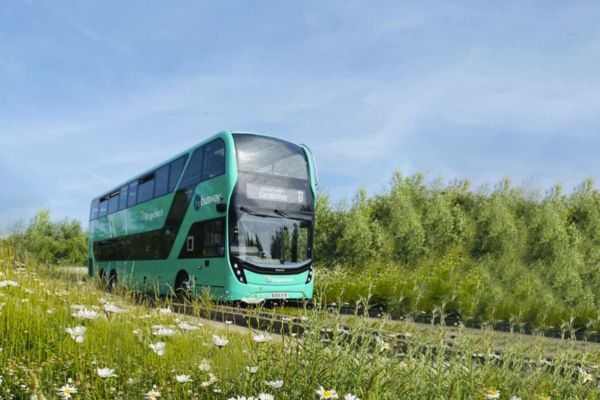Our corporate plan for 2022 to 2027 sets out our four key priorities for the city over the next five years.
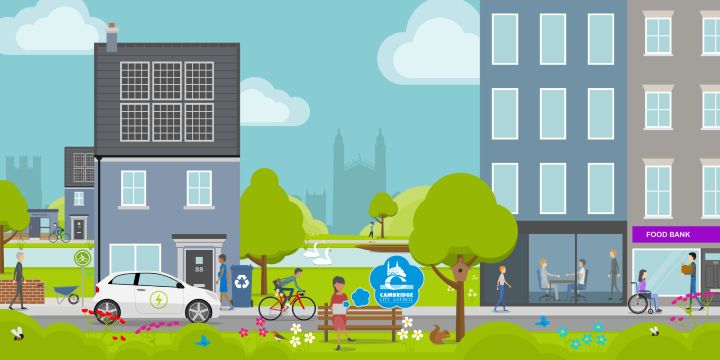
- Foreword by the Leader of the Council
- Key priorities for 2022 to 2027
- Our vision
- Key indicators to tell us whether we’re achieving our vision
- Annual report
Foreword by the Leader of the Council (February 2022)
 These are tough times for the whole country, and for our city. The pandemic and Brexit have seen many more people falling into poverty. Many of our businesses are feeling the squeeze in their incomes. Rising food and fuel prices, higher accommodation costs and cuts to Universal Credit have hit lower income families hard, making the inequality that existed before even starker.
These are tough times for the whole country, and for our city. The pandemic and Brexit have seen many more people falling into poverty. Many of our businesses are feeling the squeeze in their incomes. Rising food and fuel prices, higher accommodation costs and cuts to Universal Credit have hit lower income families hard, making the inequality that existed before even starker.
Following years of sustained cuts to our core grant, combined with loss of income, the city council will need to find over £30 million of savings over the next five years in order to balance our books.
And we need to address these issues whilst also facing a global climate and biodiversity emergency which must be addressed now, and not left until later.
But we are also a dynamic and resilient city, with resourceful communities and businesses of all sizes who really want to make a difference. Our collective response to the pandemic has shown what we can do when we all work together in a cooperative way to address the challenges we face.
We have seen the benefits of the council working alongside other agencies, voluntary groups, businesses, faith groups, individuals and communities to do the very best that we can together for all those who live and work here.
To be a council which is as ready as it can be to meet the challenges ahead, we are committed to ‘Our Cambridge’ – a transformation programme which will not only help to make the most of our resources, but also ensure we are a council which represents and works together with all of our residents, not just those who are already adept at getting heard.
We want Cambridge to be an ethical city, and one which ensures that growth benefits everyone, building wealth within our communities, encouraging skills development, and finding a way out of poverty for as many people as possible.
As newly-elected leader of the council, I look forward to working with as many people as possible to ensure that our city not only survives the challenges ahead, but thrives.
– Cllr Anna Smith, Leader of the Council, February 2022
- Find out about the current executive councillors
Key priorities for 2022 to 2027
- Leading Cambridge’s response to the climate and biodiversity emergencies and creating a net zero council by 2030
- Tackling poverty and inequality and helping people in the greatest need
- Building a new generation of council and affordable homes and reducing homelessness
- Modernising the council to lead a greener city that is fair for all
We recognise that these priorities are closely interconnected – taking forward one will often also help achieve another.
For instance, as we provide more council housing to high environmental standards, we will not only meet housing need and help tackle poverty but will aim to do so in a way that demonstrates leadership on climate change and biodiversity.
Sometimes there will be a balance to be struck too – we will increasingly aim to use data-led frameworks to understand these synergies, dependencies and interconnections more deeply over the lifetime of this plan.
These priorities will be implemented through the way the council’s policies and strategies are delivered, set out in detail in services’ operational plans.
Our vision and strategies
The Council has agreed a new vision for Cambridge, approved at full council in July 2024. It is a clear vision for One Cambridge, Fair for All.
It’s a vision we will work towards cooperatively with our residents and partner organisations.
- Read the full version of our vision.
- Read the strategies which underpin our vision.
State of the City report and dashboard
We've also produced a data-led overview of what Cambridge is like economically, socially, and environmentally.
Priority 1: Leading Cambridge’s response to the climate change and biodiversity emergencies
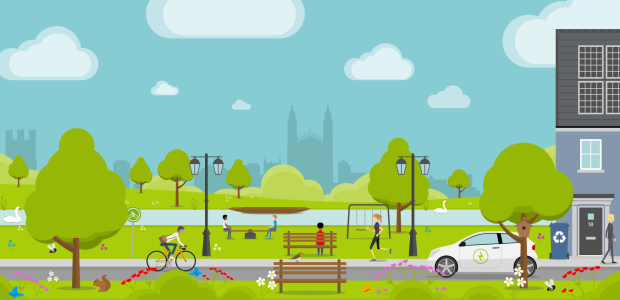
Cambridge City Council recognises the need to act now on the climate change and biodiversity emergencies. We want to play a community leadership role on these critical issues and will work to ensure that environmentally friendly choices are available to everyone, not just the more affluent.
We will work together with the whole city and our partners across Cambridgeshire to deliver a just transition towards our vision of a net zero Cambridge by 2030.
A key element of this will be our work with South Cambridgeshire District Council to jointly develop a new Local Plan.
Complementing this, the work we do with others through the Greater Cambridge Partnership aims to create wider prosperity and improve quality of life now and into the future through better, greener transport.
Our strategic objectives under this theme, as set out in our Climate Change Strategy, Biodiversity Strategy [PDF, 2.5MB] and the Joint Local Plan, are to:
- deliver our Climate Change and Biodiversity Strategies, which aim to:
- reduce carbon emissions from council buildings, land, vehicles and services to net zero by 2030,
- reduce energy consumption and carbon emissions from homes and buildings in Cambridge
- reduce carbon emissions from transport in Cambridge
- reduce consumption of resources, increase recycling and reduce waste;
- promote sustainable food and food justice
- support Council services, residents and businesses to thrive and adapt to the impacts of the climate change emergency;
- mainstream our approach to biodiversity to secure a measurable net gain in biodiversity across the City by 2025 and support the Natural Cambridgeshire Doubling Nature Vision by 2030
- ensure designated sites and priority habitats are in good / favourable condition and connected, where possible, to increase resilience to a changing climate and contribute to the Cambridge Nature Network
- promote awareness of biodiversity and wellbeing, supporting coordinated action across our communities, businesses, and institutions
- to ensure that biodiversity is considered by all council service functions and projects
- maximise the potential of our buildings, parks, open spaces, watercourses and tree stock to support biodiversity, whilst balancing their multifunctional needs
- harness the wealth of local knowledge and experience in identifying and solving local issues.
- to establish long term, species and habitat surveys and monitoring to measure the impact of activities and identify new threats and opportunities across the city
- Plan for the sustainable development of Cambridge and support the creation of vibrant, integrated and inclusive new communities. Specifically, to develop and implement a new Local Plan for Greater Cambridge that:
- supports our net zero carbon vision (including by minimising reliance on the private car),
- enhances biodiversity and green spaces,
- increases wellbeing and social inclusion,
- provides for great places (including by safeguarding our unique heritage and landscapes),
- encourages a wide range of jobs,
- provides for enough housing to meet our needs, and
- plans for the right infrastructure in the right places at the right times to serve our growing communities.
- Work with partners to address the infrastructure needs of the city and the Greater Cambridge area, to reduce congestion and pollution; support sustainable and inclusive development, and to provide a better quality of life for all.
Priority 2: Tackling poverty and inequality and helping people in the greatest need
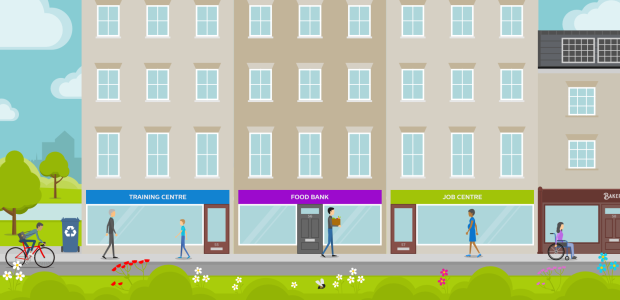
Cambridge has some of the highest income disparities in the UK. Our high value, high earning economy masks the very real levels of poverty within the city. Residents living on low incomes face very high housing costs and a high cost of living, and this is reflected in stark differences in life outcomes, particularly in health and education. Life expectancy is eleven years longer in the most affluent wards than in the most deprived.
The impact of the COVID pandemic to date has been to broaden and deepen these inequalities. There has been a doubling of the number of people in the city claiming out of work benefits, and many more people are also facing in-work poverty.
The Council has a clear strategic approach as set out in the Anti-Poverty Strategy. This focuses on addressing the root causes of poverty alongside its immediate impacts. We recognise that there are many who are more expert than us, so we work with residents and communities to build capacity, community action and mutual aid; and balance our own direct delivery with partnership working, influencing and lobbying to meet the needs of the most vulnerable, including refugees.
Cambridge is also an increasingly diverse city, and as a signatory to the Equality Pledge, the city council believes in the dignity of all people and their right to respect and equality of opportunity. The Council’s priorities are set out in its Single Equalities Scheme.
The Council will work with voluntary and community groups and local employers to help strengthen local communities, and we will work cooperatively with partners to address the underlying issues. And we will seek to listen to and work with our communities, making sure that we work in partnership with residents rather than simply doing things for them.
Our strategic objectives under this theme, including those set out in our Anti-Poverty Strategy and our Single Equality Scheme, are to:
- help people on low incomes to maximise their income and minimise costs
- strengthen families and communities and support people who are more likely to experience poverty, inequality and vulnerability.
- make sure that everyone shares in our city’s success by promoting an inclusive economy, by raising skills, and by improving access to a range of employment opportunities for people on low incomes.
- address the high cost of housing, improving housing conditions and reducing homelessness (see more detail under priority 3).
- improve health outcomes, including mental health, for people on low incomes, including by playing a leading role in the Integrated Care System to prioritise action on health inequalities.
- work towards a situation where all residents have equal access to public activities and spaces in Cambridge and are able to participate fully in the community and in making decisions about the places where they live
- tackle discrimination, harassment and victimisation and ensure that people from different backgrounds living in the city respect and value each other and continue to get on well together.
Priority 3: Building a new generation of council and affordable homes and reducing homelessness
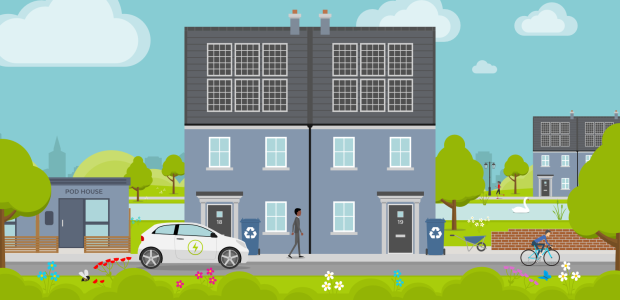
The costs of buying or renting a home, and the shortage of homes available for those on low and middle incomes are real issues for Cambridge residents.
The Greater Cambridge Housing Strategy sets out our high-level approach to tackling these challenges, including through the building of a new generation of council homes, promoting the development of affordable homes and the delivery of a co-ordinated effort to reduce homelessness.
We will seek to improve the energy efficiency of our existing housing stock as well as building new council houses to exacting standards. We will also work to improve the conditions for private renters.
Our strategic objectives under this theme, as set out in the Greater Cambridge Housing Strategy, are:
- increasing the delivery of homes, and in particular affordable housing, including Council homes, to meet housing need
- diversifying the housing market and accelerating housing delivery
- achieving a high standard of design and quality of new homes and communities
- improving housing conditions and making best use of existing homes
- preventing and Tackling Homelessness and Rough Sleeping
- working with key partners to innovate and maximise available resources
Priority 4: Modernising the council to lead a greener city that is fair for all
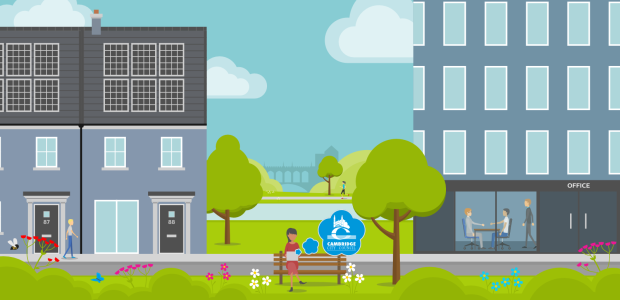
As Cambridge emerges from the damaging impact of Covid-19, Cambridge City Council will play a leading role in supporting a sustainable and inclusive recovery to build a greener city that is fair for all.
We will also deliver, those essential services that our communities rely on and that best meet our residents’ needs.
To enable the Council to play these key roles, we will transform the way we work, finding more effective and more collaborative ways of achieving the best for Cambridge, in partnership with our whole city.
Transforming the council so we can continue delivering our priorities and provide quality services despite reduced funding and income
The council will focus on providing a wide range of high-quality essential services to all those who live, work and study in Cambridge, prioritising those who need us the most. Through the “Our Cambridge” programme we will seek to understand the changing needs of those who use our services so we can support them as well as possible within our available resources.
To do this, we will continue to modernise our approach, empower our staff, and change the way we work to achieve our objectives in a low-carbon, inclusive, cooperative and financially sustainable way.
Our strategic priorities under this theme are to:
- develop co-operative, collaborative ways of working with our communities and partners, increasing our collective ability to achieve the council’s vision and improve the quality of life and wellbeing of everyone in the city
- use innovation, including new technologies, to provide high quality services
- continuously improve the services we provide so that they best meet the needs of those who use them
- run our services in an efficient way, generating income where appropriate to reinvest into other council services
- invest in our workforce and empower our staff to innovate, collaborate and achieve our shared goals
- review our assets to ensure they are delivering optimum value to the Council and wider community, increasing social capital
Leading a sustainable and inclusive recovery
Cambridge’s businesses and communities have faced many challenges through the pandemic. These compounded, and were compounded by, pre-existing inequalities and economic trends.
And yet the city also saw the best of its cooperative and networked culture, with community groups, businesses and educational institutions working together to contain the virus and support the most vulnerable residents and businesses.
Over the life of this corporate plan the Council will lead the recovery and renewal of the city, bringing partners together to build one Cambridge, fair for all, through collaboration and partnership working.
With our partners and our communities, we will also plan for inclusive and sustainable development, ensuring prosperity is shared more equally.
Our strategic objectives under this theme are to:
- Lead Cambridge’s recovery from the impacts of Covid-19 in a way that enables economic prosperity balanced with social and climate justice. More specifically, to:
- support sustainable business development;
- promote vibrancy in the city centre;
- drive down long-term inequalities; and
- promote quality, affordable green homes and spaces for everyone to thrive.
- Ensure a varied cultural offer is available to all those who live, work and study in, and visit, Cambridge from all backgrounds and incomes.
Key Indicators to tell us whether we’re achieving our vision
We have an ambition to develop our capability to use data to assess how we are performing and the impact on improving outcomes for residents, businesses, the environment, as well as the health and state of our city.
In addition to the indicators shown below, we will seek to design and develop, additional outcome measures over the course of the first and second year of the plan.
We will also explore how far we can benchmark against nationally produced indicators, such as the Legatum Institute Prosperity Index, Thriving Places Index and relevant tools developed by Doughnut Economic Action Labs, the Bennett Institute and others; and supplement these with a range of community engagement techniques to assess community wellbeing.
Priority 1 - Leading Cambridge’s response to the climate change and biodiversity emergencies
The risk and impact of the climate change and biodiversity emergencies is reduced, as measured by:
- number of air quality monitoring points exceeding Nitrogen Dioxide (NO2) legal limit
- direct emissions (tCO2) from council assets and activities
- kilograms of residual waste per household (black bin)
- % recycling rate (blue bin)
- % of all journeys undertaken by bicycle, public transport and on foot
- number of electric vehicles in the council’s fleet
- number and % of ultra-low/electric taxi vehicles licensed
Priority 2 Tackling poverty & inequality and helping people in the greatest need
People experiencing hardship, inequality and exclusion are supported to lead healthier, safer lives, as measured by:
- basket of indicators in the Anti-Poverty Strategy
- number of rough sleepers found on the bi-monthly and official annual count (November)
- number of entries to Council leisure facilities by people holding concession memberships
- number of refugees settled and supported
- Number of Free Exercise Referrals + % of people who complete the free Exercise referrals
- % of Council community grants allocated to each of the priority themes in the grants round.
- number of low-income households whose homes have been improved with home energy interventions
People with disabilities are able to live independently, as measured by:
- number of people supported by Home Improvement Agency and percentage of those reporting that it has helped them to live independently.
Priority 3 - Building a new generation of council and affordable homes and reducing homelessness
The right homes that people need and can afford to live in are built and managed by the council and its partners; enabling people to live settled lives. As measured by:
- number of council housing starts
- number of Affordable Housing completions by category (council and non-council)
- all current tenant arrears at end of period (Housemark definition)
- number of households prevented or relieved from homelessness
- % customer (tenant) satisfaction with their homes
- number of tenant complaints about damp and mould
- % customer (tenant) satisfaction with council housing repairs service
- energy and environmental performance of our housing stock (average RdSAP score)
- % of new homes delivered at Passivhaus level carbon reduction or above
- average Net gain % biodiversity on new Council housing sites
- number of private sector homes that have been improved for health and safety and energy standards
Priority 4 – Modernising the Council to lead a greener city that is fair for all
The Council delivers those essential services that our communities rely on and that best meet our residents’ needs, as measured by:
- number of developments implemented in line with (or exceeding) adopted policy requirements
- % of streets achieving Grade A cleanliness standard
- no of volunteer hours contributed to maintaining streets & open spaces
- % of food businesses rated as broadly compliant (FSA rating system)
- Investor in People (IiP) status / staff survey data
- annual income generated by council services and investments
- public waste volumes collected from city streets and open spaces
- volume of herbicide used on managing city streets and open spaces
- cost of grounds maintenance service per hectare (APSE benchmarking indicator)
Annual report
We produce an annual report each summer, to illustrate our progress against the plan.
- Annual report 2023/24 [PDF, 2.5MB]
- Annual report 2022/23 [PDF, 3.5MB]
- Annual report 2021/22 [PDF, 5.5MB]
The following reports show progress against the previous version of our Corporate Plan.
- Corporate Plan annual report 2020/21
- We did not produce an annual report for 2019/20 because of coronavirus pressures
- Corporate Plan annual report 2018/19
- Corporate Plan annual report 2017/18 [PDF, 2.5MB]
- Corporate Plan annual report 2016/17 [PDF, 3MB]

